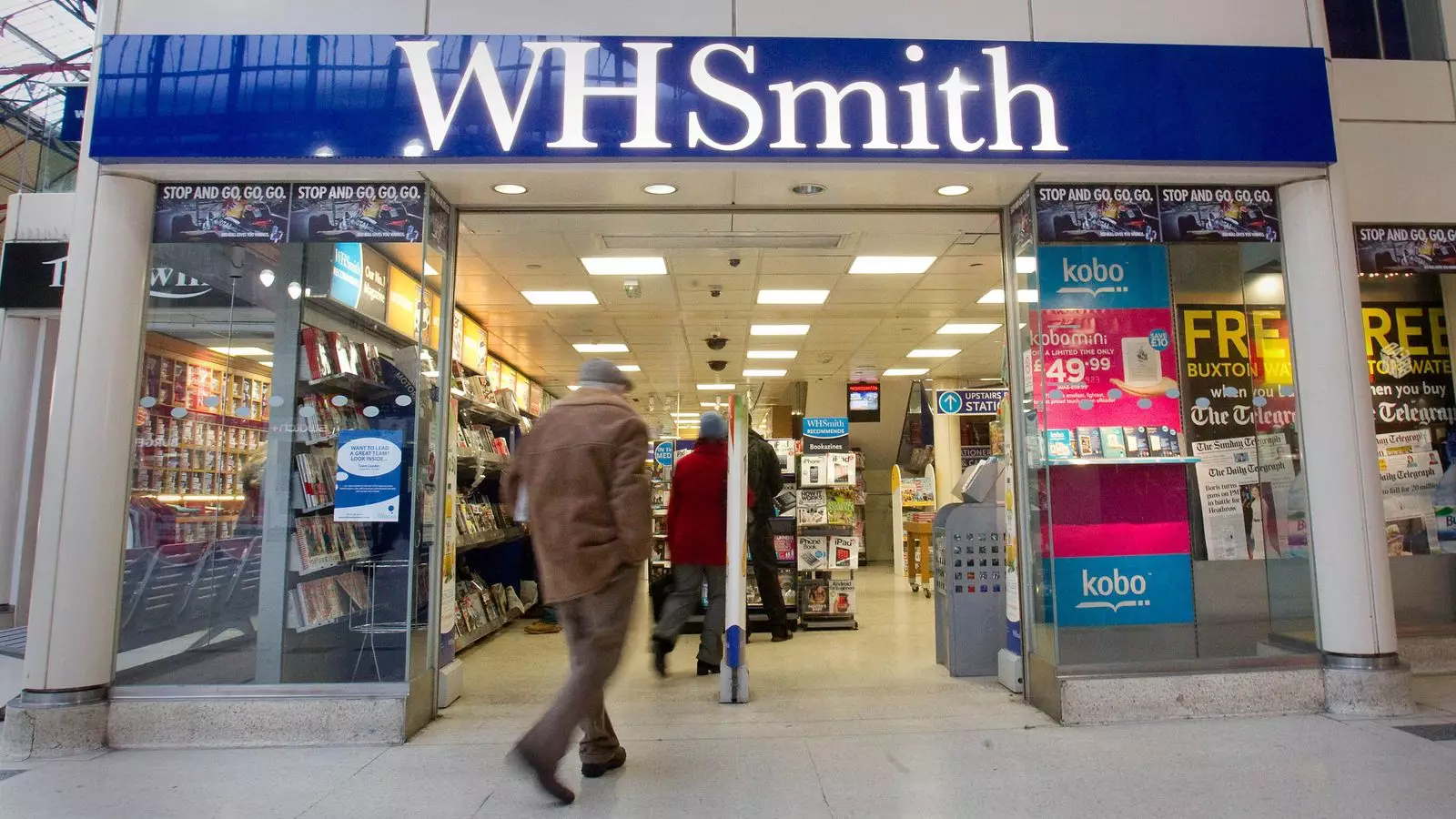Founded over 230 years ago, WH Smith has long been a staple of the British high street, starting with its first store in 1792. Its journey from a modest shop selling newspapers and stationery in central London to a commercially recognized global entity mirrors the evolving landscape of retail. WH Smith has adapted to various economic tides and consumer behaviors, but the persistent decline in high street shopping has compelled the company to reevaluate its position in the market.
Today, the conversation surrounding WH Smith is not just about its historical legacy but also about a potential pivot that could redefine its operations. Recent reports suggest that WH Smith is in advanced discussions to sell its entire high street division, a move that would resonate significantly within the retail sector, particularly in these trying economic times.
Currently, WH Smith’s market capitalization stands at approximately £1.5 billion, and the high street division operates around 500 stores, employing roughly 5,000 workers across the UK. In stark contrast, the travel retail division, which has emerged as the company’s growth engine, boasts around 600 shops in the UK and contributes significantly to WH Smith’s revenue stream.
The travel sector has shown stronger performances, comprising 75% of revenue and 85% of profits due to higher margins associated with food, drink, and technology offerings. Thus, the company’s imminent plan to focus on travel retail rather than traditional high street operations seems to reflect a strategic alignment with market demand and profitability.
The Future of Brick-and-Mortar Retail
Amidst the downturn of brick-and-mortar retail, several iconic names have exited the market, including BHS, Debenhams, and Comet, questioning the sustainability of traditional retail models. WH Smith’s potential divestment from its high street operations marks a pivotal moment that may signal broader implications for high street retail across the UK.
The move coincides with shuttering plans for approximately 15 stores this year, underlining the ongoing rationalization of the company’s physical footprint. As consumer habits shift increasingly toward online shopping and convenience, WH Smith’s decision to concentrate on travel retail could set a precedent for other retailers contemplating a similar transformation.
WH Smith’s recent announcements have generated diverse reactions among investors and industry analysts. While some view the potential sale as a strategic maneuver designed to enhance shareholder value, others express skepticism regarding the long-term viability of reducing high street presence altogether. The company’s shares have experienced a rough patch, declining by approximately 5% over the past year, which may further inspire caution among stakeholders.
By enlisting Greenhill to manage the sale process, WH Smith appears committed to a significant transition, aiming to carve a clearer identity as a travel retailer with global outreach. The cycle of rationalizing physical stores reflects an industry-wide trend to prioritize high-yield sectors over traditional, lower-margin retail environments.
As WH Smith grapples with this significant juncture, it’s essential to consider the implications of such a transformative decision. The decision to pivot towards travel retail reflects more than just immediate profitability; it signals a recognition of the challenges facing traditional high street retailers.
This transition could also lead to an inevitable shift in workforce dynamics, potentially impacting the livelihoods of thousands who work in the high street division. While the transition aims at a more resilient and profitable business model, it serves as a stark reminder of the Transformative effects of technology and changing consumer preferences on established traditional retailers.
In closing, WH Smith’s strategic reorientation may prove to be a defining moment that encapsulates the challenges and opportunities facing the retail sector in the modern age. As the company prepares to communicate its plans with definitive clarity to the London Stock Exchange, it is worth pondering whether this is indeed the end of an era, or simply a necessary evolution in a sector that continues to seek relevance in an increasingly digital world.

